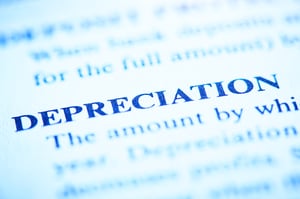It’s human nature to want to feel liked and wanted, and tenants are no exception. Sending your new tenant a welcome letter takes a little bit of time, but it’s well worth the extra effort.
Keep reading to learn more about tenant welcome letters, including a free tenant welcome letter template that you can begin using right away.
What is a Tenant Welcome Letter?
A tenant welcome letter helps both you and the tenant get off to the right start and serves as the foundation for building a winning relationship for years to come.
Sending your tenant a welcome card or a small move-in gift are both nice gestures that make the tenant feel good about renting your property. But a tenant welcome letter goes to the next level by including instructions, gentle reminders, and information that will make it easier for the tenant to think of your house as their home.

When to Send Your Tenant a Welcome Letter
The ideal time to send your tenant a welcome letter is after the lease has been signed and the first month’s rent and deposit have been collected, but before you hand over the keys and the tenant moves in.
That’s the perfect window of opportunity to send a tenant welcome letter, because your tenant will need to know the details for moving in, information about your home (such as where the circuit breakers and water shutoff valves are), which utility companies to use, and a general overview of the neighborhood and local schools.
You can also include a move-in checklist with the tenant welcome letter so that your tenant can be prepared for the walkthrough you will do together before they begin moving in.
How to Send the Tenant Welcome Letter
Most landlords and property management companies send the tenant welcome letter via email and also mail a copy to the tenant’s current address or include the tenant letter as part of a welcome package you leave for the tenant in the kitchen.
There are a couple of advantages to emailing the tenant welcome letter.
First, it’s much easier for the tenant to find, especially when everything is being boxed up prior to moving day.
Secondly, when you email the tenant welcome letter you can include links to the local utility companies, the HOA website to download rules and regulations, and emergency contact information for the police and fire departments, and your property manager’s 24/7 hotline.
Why a Tenant Welcome Letter is Important
A tenant welcome letter helps to begin a positive relationship with the tenant, one that ideally will last many years.
The welcome letter answers many basic questions right up front – such as options for internet, trash pick-up days, and the best neighborhood coffee shop - before the tenant even has to ask. Being proactive lets the tenant know that you run your rental property business professionally and that you value their time.
The tenant welcome letter can also serve as a gentle reminder of the basic terms and conditions of the lease they signed, such as when the rent is due, how to register to pay the rent online, when routine inspections are done, and who to contact if anything needs to be repaired after they move in.

How to Write a Tenant Welcome Letter
Write your tenant welcome letter in a pleasant and friendly manner, and in such a way that you set the correct expectations with the tenant right from the start. General items to include when you write a tenant welcome letter include:
Property Address
Believe it or not, sometimes tenants look at so many homes that they often forget which one they are moving into.
To avoid having the tenant make an embarrassing phone call, provide the property address and directions to your house from the nearest local landmark, such as a shopping center or major intersection.
Contact Info
Provide the tenant with emergency contact information for the fire and police departments, the nearest local hospital or 24-hour walk-in health care clinic. Include your cell phone and email address – or your property manager’s contact information – and the best way to contact you in case there is ever an emergency.
Move-In Date
Sometimes tenants think that the day they sign the lease is the day they can move in, but that’s almost never the case.
You need time to get the property ready for your new tenant, so remind the tenant of the lease start date, and whether or not you gave them permission to move in early and collected pro rated rent.
Rent Payment
Remind the tenant of the monthly rent amount and payment due date. If you’re using an online rental payment website such as Zillow Rental Manager and Cozy, give the tenant the website link and sign-up instructions.
In a pleasant way, let the tenant know when late fees begin and verify the amount of the refundable security deposit you are holding.
Keys and Garage Door Openers
Advise the tenant when and where they can pick up the keys to their new home, or if you’ll bring the keys with you when you conduct the move-in walkthrough.
Let the tenant know the locks have been rekeyed and the garage door openers reprogrammed so that their place will be safe and secure. Remind the tenant of any fees for locked keys, or the cost of calling a locksmith or going to the property if the tenant accidentally locks themselves out.
Maintenance and Repairs
Your tenant welcome letter should also let the tenant know the home has been thoroughly inspected and professionally cleaned. When the property requires maintenance, inform the tenant who to contact and how.
This is also a good place to remind the tenant that the inside and outside of the house are periodically inspected and that they will be given proper notice before entering the property.
Trash Collection
Make sure the tenant has contact information for the city department or private company that handles trash collection in the neighborhood. If the community has a recycling program, explain to the tenant which garbage cans to use, what the collection schedule is, and where to put the trash containers for pick up.
Utility Information
Tenants who rent single-family homes are normally responsible for paying their own utilities. Provide the tenant with the names and contact information for the electric, gas, water, and trash companies, and give the tenant a heads-up if a utility requires a deposit for establishing a new account.
Renters Insurance
Renters insurance is a policy the tenant obtains from their local insurance company that provides coverage for loss or destruction of personal belongings, and personal liability coverage if a guest of the tenant is injured.
It’s a good idea to require the tenant to obtain renters insurance if your state law allows because it helps protect both the tenant and you from any potential liability claims.
HOA Rules and Regulations
Some homeowners associations can be extremely proactive, assessing penalties and fines for even the most minor infractions. Include a copy of the HOA rules and regulations in the tenant letter and provide a download link if the tenant welcome letter is sent via email.
Advise the tenant that any HOA fines you receive will be paid by the tenant, making sure to include an HOA addendum in your lease agreement.
Neighborhood Highlights
Even if the tenant has lived in town for years, they may not be familiar with the nearby amenities in their new neighborhood.
Include helpful information such as where the nearest grocery store is, the easiest way to beat rush hour traffic, and where the best under-the-radar place is to eat and drink.

Sample Tenant Welcome Letter
Here’s a sample tenant welcome letter that we’ve put together especially for you. You can download this free tenant welcome letter template in Microsoft Word and Google Docs format, and customize it for your specific needs:
Dear [Tenant First Names]
I just wanted to take a moment and welcome you to your new home at [Property Address].
This letter contains a lot of helpful information as you prepare to move in on [Move-In Date], such as how to connect utilities, trash collection days, and my favorite restaurant in the neighborhood [Restaurant Name and Location].
If you have questions or need anything, I can be reached at [Contact Information].
1. RentWhen you signed the lease we received the first month’s rent in advance in the amount of [Amount Received], along with pro rent for the time period [Include Dates], and a security deposit of [Amount of Security Deposit].
Your next rent payment in the amount of [Rent Amount] is due on [Rent Due Date], and on [Recurring Due Date] thereafter. Late rent payments and other fees as described in your lease agreement apply if your rent is not paid by the due date.
To avoid late rent fees and pay the monthly rent online, you can set up an account at [Name of Online Rent Payment Service].
2. KeysPrior to your moving in, the locks have been rekeyed and the garage door opener reprogrammed for your security. When we meet at the property on [Move-In Date and Time] we will complete a move-in checklist together and you will receive the keys at that time.
If the keys are lost and need to be replaced, there is a fee of [Rekey Fee] for having to rekey the locks. There is also a fee of [Lockout Fee] if you lock yourself out and someone needs to be sent to the house to let you in.
3. MaintenanceIf there are any routine maintenance requests, such as a leaky faucet or a door that doesn’t work, please contact me at [Best Phone Number] during normal business hours, Monday through Friday.
For emergencies, such as a broken water line or broken window, please contact [Name] at [Phone Number].
4. TrashTo set up an account for trash collection, please contact [Company or City Department and Contact Information].
Trash collection is done every [List Days], and trash cans should be made available for pick-up by [Time]. Regular garbage collection is done on [List Days] and recycling is picked up every [List Days].
5. UtilitiesPer the lease agreement, you are responsible for [List Utilities]. Here is the contact information for each utility provider:
- Electric: [Utility Company and Contact Info]
- Gas: [Utility Company and Contact Info]
- Water: [Utility Company and Contact Info]
- Cable/Internet: [Utility Company and Contact Info]
- Insurance
[Include if Applicable]
Per the lease agreement, you are responsible for obtaining and keeping in force renters insurance that will provide coverage for you and your personal belongings in case of theft or damage, along with personal liability claims made against you by one of your guests.
The minimum required coverage amount of your renters insurance is [Coverage Amount] for the home you are renting at [Property Address]. Most insurance companies offer renters insurance at a cost of just a few dollars per month.
7. HOAPlease download the rules and regulations for the homeowners association (HOA) that you are living in as soon as possible. An HOA representative routinely drives through the neighborhood looking for infractions such as [List HOA Hot Buttons such as trash cans brought in, garage doors closed, and exterior lights turned on at night].
Per the lease agreement, any fines or penalties assessed by the HOA will be charged to you. However, as long as you follow the rules, there should be no complaints.
8. NeighborhoodTo help you feel at home as quickly as possible, here are some of the most important things to know about your new neighborhood:
- Grocery: [List Locations]
- Shopping: [List Locations]
- Restaurants: [List Locations]
- Schools: [List Locations]
- Parks: [List Locations]
- Favorites: [List Locations]
Thanks for taking the time to read this letter in detail. If you have questions about anything in this letter, feel free to contact me at your convenience.
I trust the information in this letter will help your move in to go smoothly and that you’ll feel right at home!
Sincerely,
[Your Name]









